The youth and a pandemic
Preparing for COVID-19
The outbreak of the coronavirus in China has killed more than 900 people, but one group has escaped with minimal damage: Children.
Youth can certainly contract the virus. Among the infected are at least two newborns, according to Chinese health officials. But few children are among those sick enough to be diagnosed with the coronavirus. Numbers are changing quickly as the outbreak evolves — the median age of patients skews older, between 49 and 56 years old.
It's not entirely clear why children seem to be escaping the worst effects of the virus, dubbed 2019-nCoV. A similar pattern holds for many infectious diseases, from the familiar, such as chickenpox and measles, to the newly emerged, including severe acute respiratory syndrome (SARS) and Middle East respiratory syndrome (MERS), doctors say.
Namibia has been going into lockdown since two cases have been reported and tested positive for the virus.
All school meetings have also been suspended in order to ensure the health of teachers and learners as well as to make sure that the virus doesn’t continue to spread.
This will make it more difficult for young people to stay busy and off the streets.
Infectious disease in kids
The innate immune system is the first line of defence against pathogens. Cells in that system respond immediately to foreign invaders. (The adaptive immune system, by contrast, learns to recognise specific pathogens, but takes longer to join the battle.)
If the innate immune response is stronger in children exposed to the coronavirus, they may fight off infection more readily than adults, suffering only mild symptoms.
Other diseases, including SARS and MERS, also show this pattern.
Aging and the immune system
It's hard to know for sure how many kids have contracted the coronavirus, which emerged in Wuhan, China, in December. This uncertainty reflects both the rapidly changing information coming out of China as the outbreak continues and the fact that children with mild symptoms probably won't be tested and confirmed to have the virus.
Myth Busters
Cold weathers and snow cannot kill the coronavirus
The normal human body temperature remains around 36.5 degrees Celsius and 37 degrees Celsius, regardless of the external temperature or weather. The most effective way to protect yourself against the virus is frequently washing your hands, or disinfecting with an alcohol-based hand sanitiser.
The coronavirus cannot be transmitted through mosquito bites
The coronavirus is a respiratory virus which spreads primarily through droplets generated when an infected person coughs or sneezes or through droplets of saliva or discharge from the nose.
People of all ages are susceptible to the virus
Older people, and people with pre-existing medical conditions (such as asthma, diabetes and heart disease) appear to be more vulnerable to becoming severely ill with the virus. However, people of all ages should take precautions to protect themselves.
Are antibiotics effective in preventing and treating the virus?
This is a virus and therefore antibiotics should not be used as a means of prevention or treatment. However, if you are hospitalised for the coronavirus, you may receive antibiotics since bacterial co-infection is possible.
Children might have healthier respiratory tracts because they've been exposed to less cigarette smoke and air pollution than adults. Another factor seems to be that kids are healthier in general, with fewer chronic health conditions.
In both the SARS outbreak of 2003 and the MERS outbreak of 2012, adults with chronic health conditions were at a higher risk of death than adults without co-occurring conditions.
These conditions could include anything from diabetes to autoimmune disorders to cardiovascular disease, or even simple obesity.
Adults are also more susceptible to a detrimental immune response that causes a condition called acute respiratory distress syndrome (ARDS).
A complicated imbalance of immune cell activity sends inflammation in the lungs into overdrive, ultimately causing fluid to fill the alveoli, or air sacs, according to research published in the journal Annals of Translational Medicine.
The red blood cells flow into these alveoli to pick up new oxygen. When the sacs flood, they stop working. The person can no longer breathe. Studies suggest that about 40% of people with ARDS die.
ARDS was frequently fatal in adults with SARS, whereas even though children with SARS had pneumonia, they didn't get the immunologic complications that adults have.
Basic protective measures against the coronavirus
COVID-19 is still affecting mostly people in China with some outbreaks in other countries. Most people who become infected experience mild illness and recover, but it can be more severe for others.
Take care of your health and protect others by doing the following:
Wash your hands frequently
Regularly and thoroughly clean your hands with an alcohol-based hand sanitiser or wash them with soap and water.
Why? Washing your hands with soap and water or using alcohol-based hand sanitiser kills viruses that may be on your hands.
Maintain social distancing
Maintain at least one metre distance between yourself and anyone who is coughing or sneezing.
Why? When someone coughs or sneezes, they spray small liquid droplets from their nose or mouth which may contain virus. If you are too close, you can breathe in the droplets, including the COVID-19 virus if the person coughing has the disease.
Avoid touching eyes, nose and mouth
Why? Hands touch many surfaces and can pick up viruses. Once contaminated, hands can transfer the virus to your eyes, nose or mouth. From there, the virus can enter your body and can make you sick.
Practice respiratory hygiene
Make sure you, and the people around you, follow good respiratory hygiene. This means covering your mouth and nose with your bent elbow or tissue when you cough or sneeze. Then dispose of the used tissue immediately.
Why? Droplets spread virus. By following good respiratory hygiene, you protect the people around you from viruses such as cold, flu and COVID-19.
If you have fever, cough and difficulty breathing, seek medical care early.
Stay home if you feel unwell. If you have a fever, cough and difficulty breathing, seek medical attention, but be sure to call in advance. Follow the directions of your local health authority.
Why? National and local authorities will have the most up-to-date information on the situation in your area. Calling in advance will allow your health care provider to quickly direct you to the right health facility. This will also protect you and help prevent spread of viruses and other infections.
When to use a mask
If you are healthy, you only need to wear a mask if you are taking care of a person with suspected infection.
Wear a mask if you are coughing or sneezing.
Masks are effective only when used in combination with frequent hand-cleaning with alcohol-based hand sanitisers or soap and water.
If you wear a mask, then you must know how to use it and dispose of it properly.
How to put on, use, take off and dispose of a mask
Before putting on a mask, clean hands with alcohol-based hand sanitiser or soap and water.
Cover mouth and nose with mask and make sure there are no gaps between your face and the mask.
Avoid touching the mask while using it; if you do, clean your hands with alcohol-based hand sanitiser or soap and water.
Replace the mask with a new one as soon as it is damp and do not re-use single-use masks.
To remove the mask: Remove it from behind (do not touch the front of mask); discard immediately in a closed bin; clean hands with alcohol-based hand sanitiser or soap and water.
World Health Organisation
Youth can certainly contract the virus. Among the infected are at least two newborns, according to Chinese health officials. But few children are among those sick enough to be diagnosed with the coronavirus. Numbers are changing quickly as the outbreak evolves — the median age of patients skews older, between 49 and 56 years old.
It's not entirely clear why children seem to be escaping the worst effects of the virus, dubbed 2019-nCoV. A similar pattern holds for many infectious diseases, from the familiar, such as chickenpox and measles, to the newly emerged, including severe acute respiratory syndrome (SARS) and Middle East respiratory syndrome (MERS), doctors say.
Namibia has been going into lockdown since two cases have been reported and tested positive for the virus.
All school meetings have also been suspended in order to ensure the health of teachers and learners as well as to make sure that the virus doesn’t continue to spread.
This will make it more difficult for young people to stay busy and off the streets.
Infectious disease in kids
The innate immune system is the first line of defence against pathogens. Cells in that system respond immediately to foreign invaders. (The adaptive immune system, by contrast, learns to recognise specific pathogens, but takes longer to join the battle.)
If the innate immune response is stronger in children exposed to the coronavirus, they may fight off infection more readily than adults, suffering only mild symptoms.
Other diseases, including SARS and MERS, also show this pattern.
Aging and the immune system
It's hard to know for sure how many kids have contracted the coronavirus, which emerged in Wuhan, China, in December. This uncertainty reflects both the rapidly changing information coming out of China as the outbreak continues and the fact that children with mild symptoms probably won't be tested and confirmed to have the virus.
Myth Busters
Cold weathers and snow cannot kill the coronavirus
The normal human body temperature remains around 36.5 degrees Celsius and 37 degrees Celsius, regardless of the external temperature or weather. The most effective way to protect yourself against the virus is frequently washing your hands, or disinfecting with an alcohol-based hand sanitiser.
The coronavirus cannot be transmitted through mosquito bites
The coronavirus is a respiratory virus which spreads primarily through droplets generated when an infected person coughs or sneezes or through droplets of saliva or discharge from the nose.
People of all ages are susceptible to the virus
Older people, and people with pre-existing medical conditions (such as asthma, diabetes and heart disease) appear to be more vulnerable to becoming severely ill with the virus. However, people of all ages should take precautions to protect themselves.
Are antibiotics effective in preventing and treating the virus?
This is a virus and therefore antibiotics should not be used as a means of prevention or treatment. However, if you are hospitalised for the coronavirus, you may receive antibiotics since bacterial co-infection is possible.
Children might have healthier respiratory tracts because they've been exposed to less cigarette smoke and air pollution than adults. Another factor seems to be that kids are healthier in general, with fewer chronic health conditions.
In both the SARS outbreak of 2003 and the MERS outbreak of 2012, adults with chronic health conditions were at a higher risk of death than adults without co-occurring conditions.
These conditions could include anything from diabetes to autoimmune disorders to cardiovascular disease, or even simple obesity.
Adults are also more susceptible to a detrimental immune response that causes a condition called acute respiratory distress syndrome (ARDS).
A complicated imbalance of immune cell activity sends inflammation in the lungs into overdrive, ultimately causing fluid to fill the alveoli, or air sacs, according to research published in the journal Annals of Translational Medicine.
The red blood cells flow into these alveoli to pick up new oxygen. When the sacs flood, they stop working. The person can no longer breathe. Studies suggest that about 40% of people with ARDS die.
ARDS was frequently fatal in adults with SARS, whereas even though children with SARS had pneumonia, they didn't get the immunologic complications that adults have.
Basic protective measures against the coronavirus
COVID-19 is still affecting mostly people in China with some outbreaks in other countries. Most people who become infected experience mild illness and recover, but it can be more severe for others.
Take care of your health and protect others by doing the following:
Wash your hands frequently
Regularly and thoroughly clean your hands with an alcohol-based hand sanitiser or wash them with soap and water.
Why? Washing your hands with soap and water or using alcohol-based hand sanitiser kills viruses that may be on your hands.
Maintain social distancing
Maintain at least one metre distance between yourself and anyone who is coughing or sneezing.
Why? When someone coughs or sneezes, they spray small liquid droplets from their nose or mouth which may contain virus. If you are too close, you can breathe in the droplets, including the COVID-19 virus if the person coughing has the disease.
Avoid touching eyes, nose and mouth
Why? Hands touch many surfaces and can pick up viruses. Once contaminated, hands can transfer the virus to your eyes, nose or mouth. From there, the virus can enter your body and can make you sick.
Practice respiratory hygiene
Make sure you, and the people around you, follow good respiratory hygiene. This means covering your mouth and nose with your bent elbow or tissue when you cough or sneeze. Then dispose of the used tissue immediately.
Why? Droplets spread virus. By following good respiratory hygiene, you protect the people around you from viruses such as cold, flu and COVID-19.
If you have fever, cough and difficulty breathing, seek medical care early.
Stay home if you feel unwell. If you have a fever, cough and difficulty breathing, seek medical attention, but be sure to call in advance. Follow the directions of your local health authority.
Why? National and local authorities will have the most up-to-date information on the situation in your area. Calling in advance will allow your health care provider to quickly direct you to the right health facility. This will also protect you and help prevent spread of viruses and other infections.
When to use a mask
If you are healthy, you only need to wear a mask if you are taking care of a person with suspected infection.
Wear a mask if you are coughing or sneezing.
Masks are effective only when used in combination with frequent hand-cleaning with alcohol-based hand sanitisers or soap and water.
If you wear a mask, then you must know how to use it and dispose of it properly.
How to put on, use, take off and dispose of a mask
Before putting on a mask, clean hands with alcohol-based hand sanitiser or soap and water.
Cover mouth and nose with mask and make sure there are no gaps between your face and the mask.
Avoid touching the mask while using it; if you do, clean your hands with alcohol-based hand sanitiser or soap and water.
Replace the mask with a new one as soon as it is damp and do not re-use single-use masks.
To remove the mask: Remove it from behind (do not touch the front of mask); discard immediately in a closed bin; clean hands with alcohol-based hand sanitiser or soap and water.
World Health Organisation


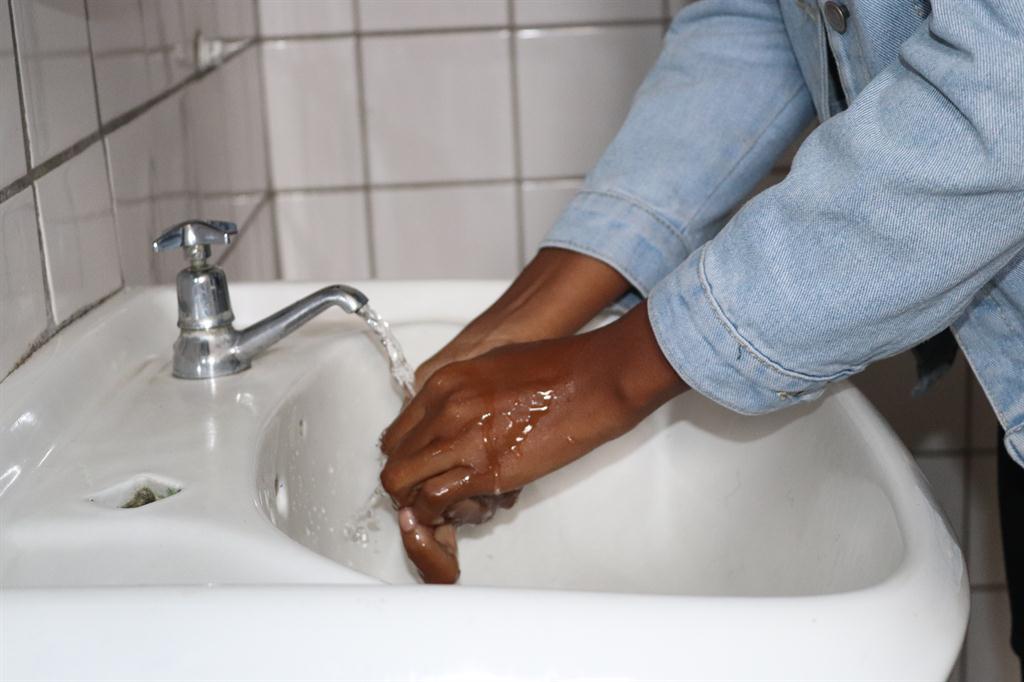
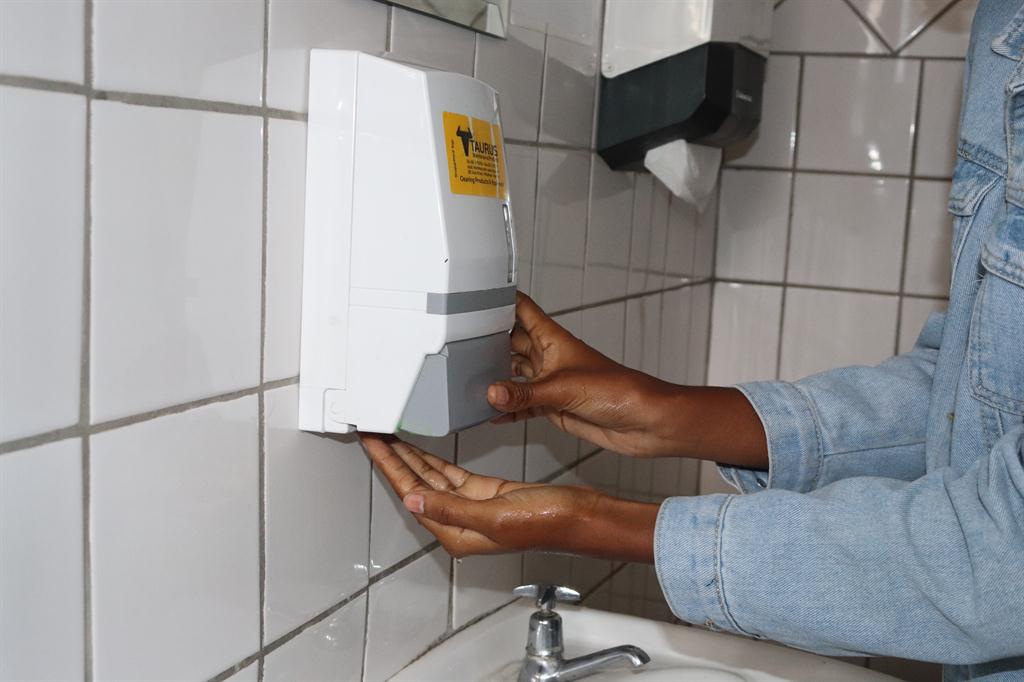

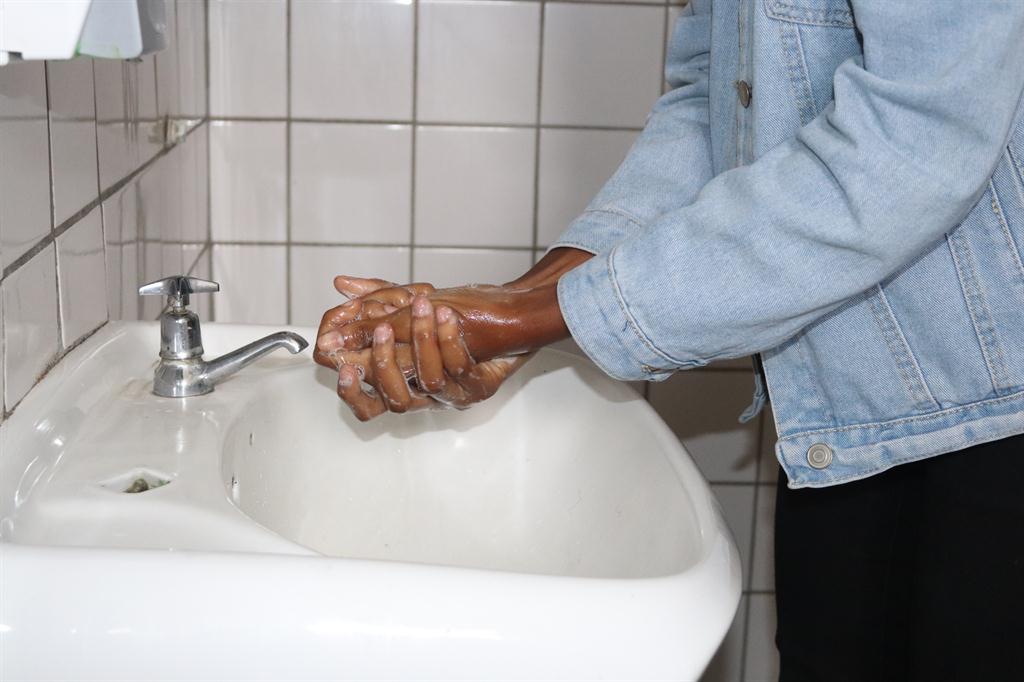
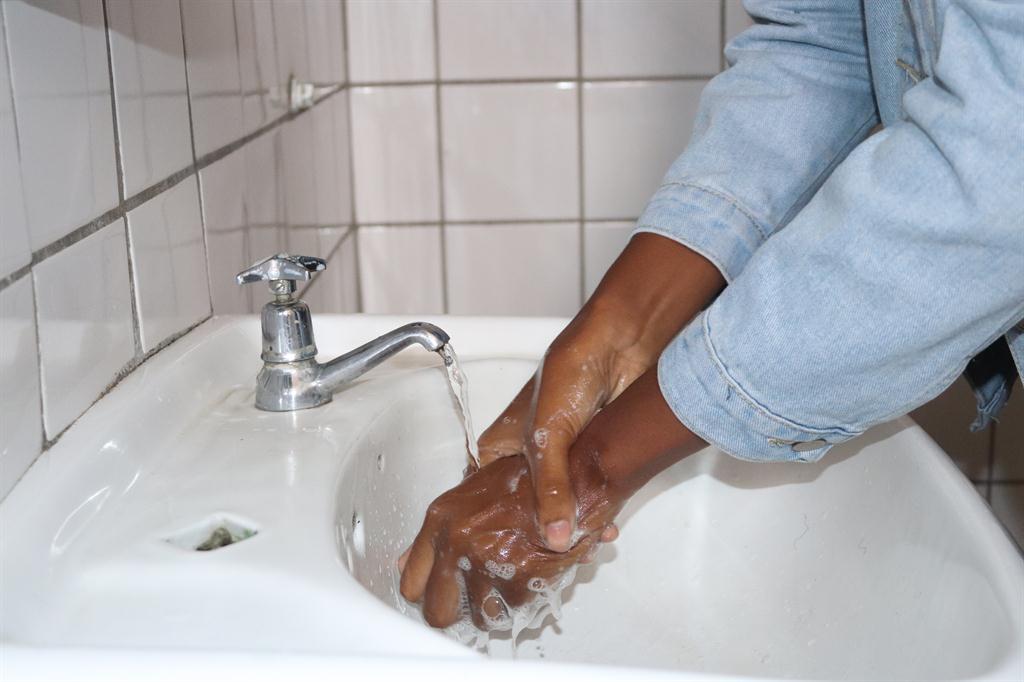
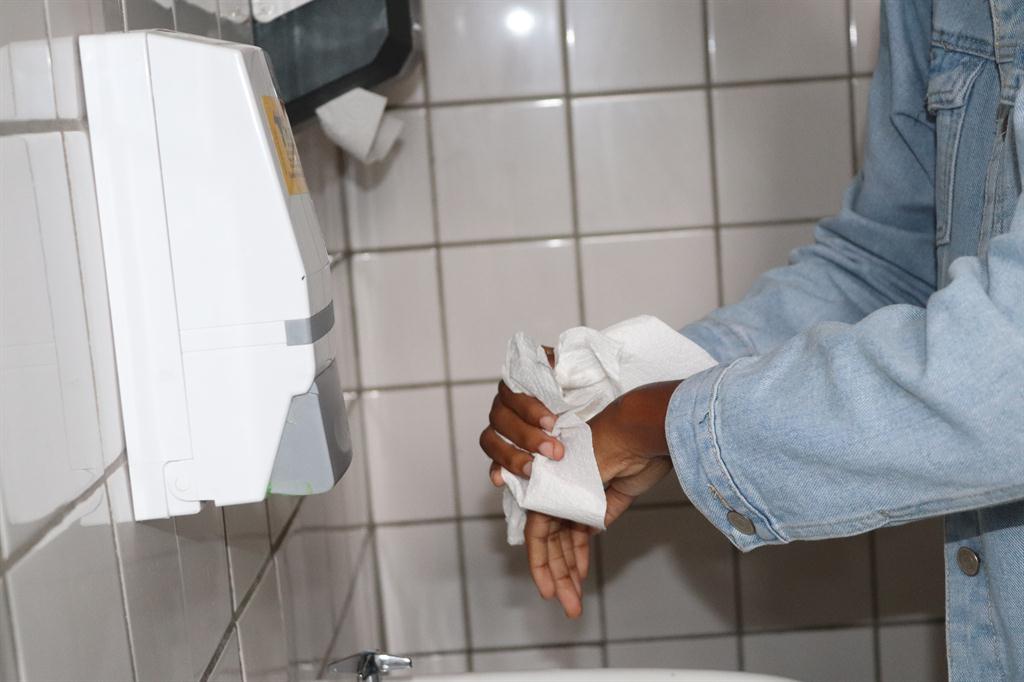
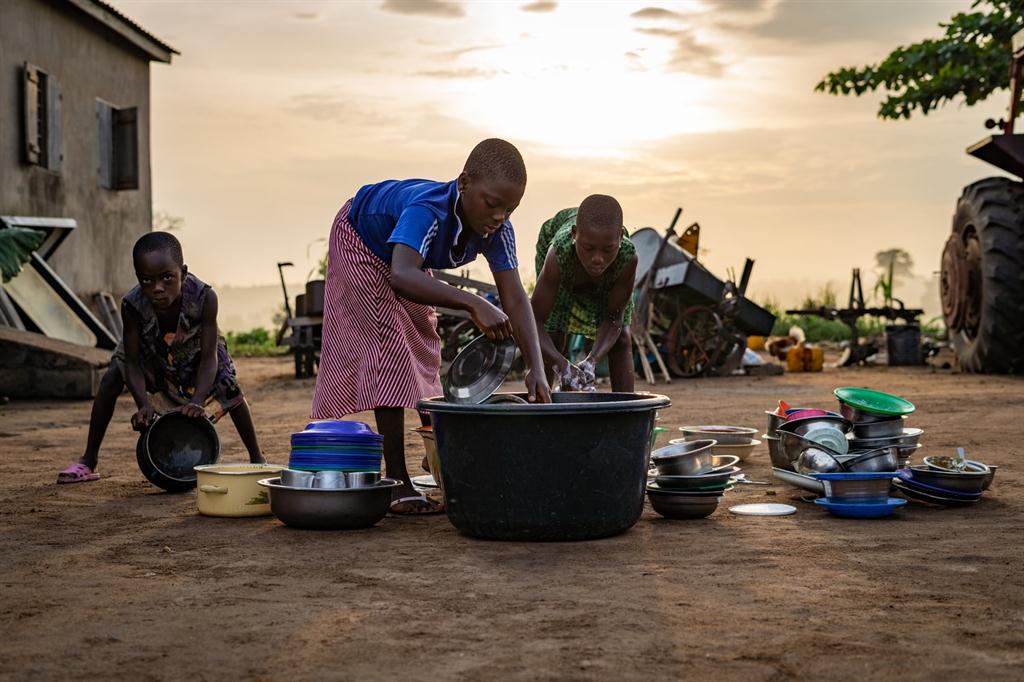

Kommentaar
Republikein
Geen kommentaar is op hierdie artikel gelaat nie